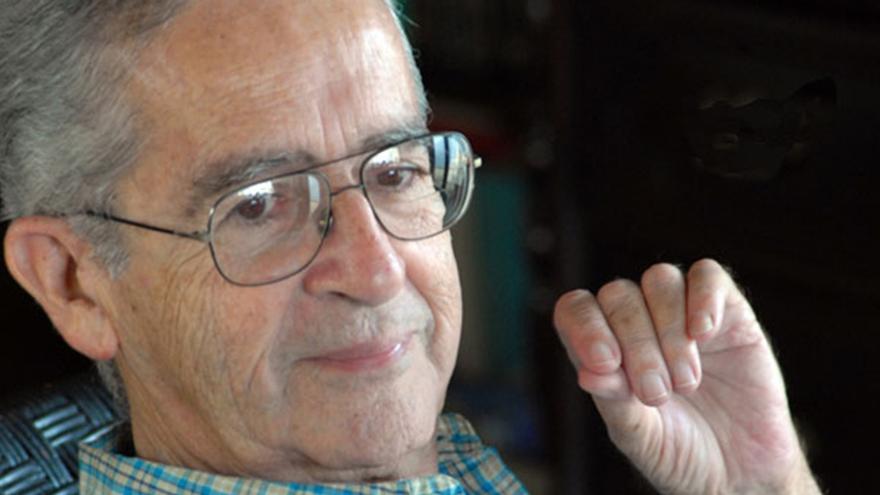
![]() 14ymedio, Havana, 5 April 2022 — The Cuban film writer and screenwriter Ambrosio Fornet Frutos died this Tuesday at the age of 90, the Casa de las Américas reported on its social networks. “His work constitutes a fundamental part of the nation’s culture, which he always defended,” the institution wrote, recalling that the intellectual was “one of its closest and most beloved collaborators.”
14ymedio, Havana, 5 April 2022 — The Cuban film writer and screenwriter Ambrosio Fornet Frutos died this Tuesday at the age of 90, the Casa de las Américas reported on its social networks. “His work constitutes a fundamental part of the nation’s culture, which he always defended,” the institution wrote, recalling that the intellectual was “one of its closest and most beloved collaborators.”
With more than twenty texts written and edited, including El libro en Cuba; siglos XVIII and XIX (1994) [The Book in Cuba; XVIII and XIX Centuries] and Las trampas del oficio; apuntes sobre cine y sociedad (2007) [The Tricks of the Trade; Notes on Cinema and Society], Fornet won the National Publishing Prize in 2002 and the Literature Prize in 2009.
Fornet’s creative life was always linked to cinema. Among his works, the script for the film Retrato de Teresa (1979) [Portrait of Teresa], directed by Pastor Vega, stands out, in addition to his work as an advisor and professor at various academic institutions and at the Cuban Institute of Cinematographic Art and Industry.
He also appeared on several occasions as a jury member for the Casa de las Américas Award, and for other competitions, such as the Juan Rulfo Latin American and Caribbean Award and the International Festival of New Latin American Cinema in Havana.
Fornet is credited with having been the one who baptized the Quinquenio Gris [Five Grey Years], which began in 1971 with the censorship against the writer Heberto Padilla and his book Fuera de Juego [Out of the Game], marked by the excesses of dogmatism that the National Council of Culture (CN) imposed on letters and the arts. Many intellectuals agree, however, that it was “neither a five-year period nor gray,” but rather was a much longer and darker period.
Fornet exposed as antecedents of the Quinquenio Gris some controversies of the 60s, the closure of the cultural supplement Lunes de Revolución [Revolution Mondays] – directed by Guillermo Cabrera Infante – the Military Units for Production Support (UMAP, forced labor farms for young homosexuals and religious believers) and official hostility towards works by Antón Arrufat, Heberto Padilla and José Lezama Lima, until reaching the First Congress of Education and Culture, in 1971.
Regarding the Congress and what came later with Luis Pavón Tamayo at the head of the CNC, the writer born in the province of Granma said that a policy was carried out that reached a “sick degree” of homophobia and displaced those who did not qualify as “politically reliable.”
“Just as we must not forget that in a permanently besieged square, such as our country, insisting on discrepancies and disagreements is equivalent to ’giving weapons to the enemy,’ nor should we forget that pacts of silence are usually extremely risky,” Fornet said in a debate that was inserted into the so-called little email war of 2007, when dozens of intellectuals reacted to the reappearance in the official media of Pavón, considered one of the main executors of Castro’s censorship in the 1970s.
____________
COLLABORATE WITH OUR WORK: The 14ymedio team is committed to practicing serious journalism that reflects Cuba’s reality in all its depth. Thank you for joining us on this long journey. We invite you to continue supporting us by becoming a member of 14ymedio now. Together we can continue transforming journalism in Cuba.
